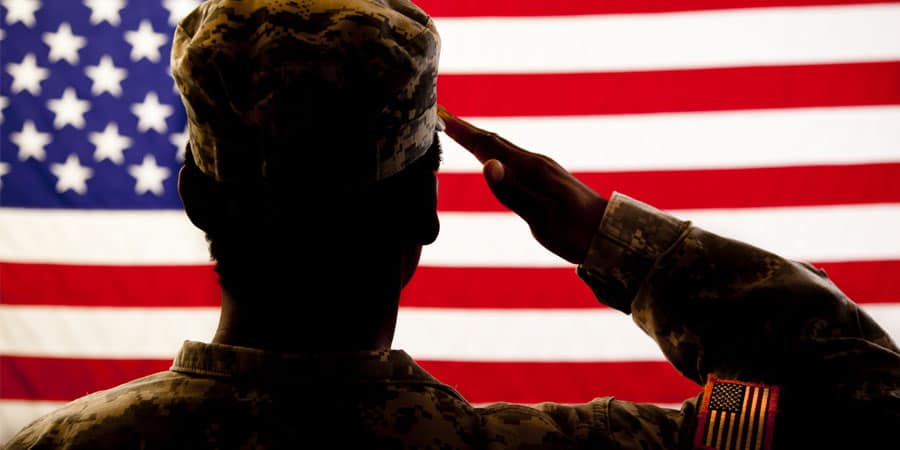A Guide to Medical Marijuana Use in Veterans
Medical marijuana use in veterans is an important way of coping. Veterans are our national heroes. They risk everything to maintain the peace and sovereignty of our beloved country, repeatedly exposing themselves to the most dangerous conditions. Sooner or later, their sacrifice takes a physical and mental toll. This sacrifice makes it difficult for many to blend back into society when they finish serving. The physical and mental health challenges veterans face when they come back tops the list of factors making integration difficult.
For many years now, opioid addiction and other prescribed medications have been commonplace among our service heroes. The widespread acceptance and legalization of medical marijuana give veterans access to a new treatment option. More and more veterans are turning to cannabis for the relief of their physical and mental health conditions. Here is everything veterans need to know about treating themselves with medical marijuana.
What is the Current Legislation on Medical Cannabis?
The debate on the pros and cons of legalizing medical marijuana would probably go on forever. However, the current trend shows that the parties in favor of marijuana are on the winning side. But this debate shouldn't be about winning or losing. It should be about legislation affecting millions of Americans' health, including our veterans.
Currently, marijuana remains a Schedule I substance under federal laws under the Food and Drug Administration. Consequently, the federal government nor the Department of Veteran Affairs do not recognize any therapeutic benefit of marijuana. The stringent grouping creates numerous challenges for researchers looking to conduct studies on medical marijuana. And importantly, it prevents federal government agencies from lending any form of support to medical marijuana users. Advocates such as the American Legion urge legislative action on cannabis research.
As of May 2019, 33 American states and Washington, DC, have legalized the use of medical marijuana. Existing marijuana laws vary from state to state. Adult residents are able in some US states to apply for a medical marijuana license if they have a qualifying condition.
If you are a veteran living in any of these states, you are also eligible to benefit from medical marijuana treatment. Being duly examined by a licensed marijuana doctor is the first step. Due to federal legislation, however, veterans who opt for medical marijuana treatment are not covered by Veteran Affairs. And hardly any health insurance company extends their veterans benefits coverage for the drug. Thus, insurance does not include any of the payments.
Why Do So Many Veterans Use Medical Weed?
Many veterans turn to medical marijuana as an alternative to highly addictive and potentially dangerous opioid medications. According to the Department of Veterans Affairs, approximately 65% of veterans suffer from chronic pain, and they are twice as likely to die from accidental prescription opioid overdoses compared to non-veterans. The rigors of military service take a toll on their bodies, and medical cannabis can help manage pain, improve sleep, and alleviate anxiety. While VA doctors cannot recommend it due to federal restrictions, veterans seek relief through this natural option.
The relationship between veterans and medical marijuana is a rather complex one. Using marijuana during active service is not supported by the military. However, many veterans admit to using it. According to them, it helps take the edge off in the hyper-tense war zones. They also know it helps with physical pain, sleep disturbances, anxiety, and some mental health issues.
After their service, a high percentage of war veterans still turn to medical marijuana to deal with mental health issues. PTSD is the most common. According to Veteran Affairs, about 11% and 10% of the Afghanistan and Gulf War veterans are living with PTSD. The figure rises to an astonishing 31% for veterans of the Vietnam War.
As no surprise, marijuana is not the only drug commonly used among veterans. Statistics show that veterans are ten times more likely to abuse their prescribed opioids when compared with the general population. The abuse of drugs, such as cocaine and heroin, is also more common among veterans.
Medical cannabis flower for PTSD is controversial. Despite this, numerous studies can be helpful for PTSD. Moreover, many veterans of medical marijuana reports admit that the drug is more effective than most of the available alternatives. And if you are worried about safety, you should know that marijuana is one of the 'safest' psychoactive drugs around.
What Conditions Can Veterans Treat with Marijuana?
Admittedly, there is still a lot we have yet to discover about the cannabis plant. Take, for instance, the entourage effect. However, making cannabis legal sparks waves of research that will lead to more discoveries. Here are the conditions medical marijuana can help veterans with, as proven by medical research.
PTSD
PTSD is the most common mental health issue among war veterans. Long after the war is over and soldiers have returned home, post-traumatic stress disorder may persist. Regrettably, the grotesque scenes they have witnessed keep replaying. Veterans who have PTSD complain of symptoms such as vivid flashbacks, unwanted memories, negative alterations in mood, and alterations in arousal. Veteran suicide may be a tragic outcome.
The current mainstay in PTSD treatment requires a combination of psychological treatment and prescription medications. Regrettably, some studies have observed a growing trend of resistance to drug therapy among combat veterans with PTSD. Numerous studies also highlight the efficacy of cannabis for PTSD. Its high safety profile presents a more harmless and more effective alternative for PTSD treatment in veterans. In 2014, a New Mexico Cannabis Program reported PTSD patients using cannabis experienced a more than 75% reduction in their symptoms compared to other medications. Veterans are using marijuana for PTSD more and more often.
Chronic Pain
Everyone would agree that living with pain makes life much more difficult; veterans can write a chapter on living with chronic pain. Many of the injuries they sustain do not just heal and go away. The result is a life of persistent and often unbearable pain.
For many doctors, opioids are the go-to drugs for dealing with chronic pain. While these drugs are, no doubt, highly effective, there is high abuse potential. The side effects and fatal nature of opioid overdose make them a ticking time bomb. On average, opioids kill more than 100 people every day. Also, veterans are ten times more likely to abuse their prescription opioids.
The analgesic properties of medical cannabis have been repeatedly studied and proven. While the drug may not be as effective as opioids, it has a much wider safety margin. For many veterans, cannabis may be a safer pain management treatment candidate if they are looking to get off opioids.
Depression
Depression is yet another mental health issue that affects hundreds of thousands of veterans. The VA reports that veterans are lost to suicide every day. Many factors can precipitate depression. Many military veterans develop these conditions as a result of the physical and emotional trauma suffered in times of war.
Marijuana may not be a cure for depression. Despite this, many veterans report that the drug helps reduce their symptoms and lift their moods. There have also been studies showing medical marijuana could benefit people suffering from depression in the short term.
Can You Talk to Your VA Doctor about Using Medical Cannabis?
On a general note, patients are encouraged to discuss all the available treatment options with their doctor. Veteran participation in health care decisions is fundamental. If you feel medical cannabis can help your condition, you should contact your VA health care doctor about it. Indeed, the VA health system cannot recommend you for a medical marijuana card. However, they can always offer helpful advice and, perhaps, a referral.
Moreover, it is essential to let your doctor know your entire medication history. If you are already on medical marijuana, inform your VA doctor to prevent harmful drug interactions. You can trust your doctor to treat any shared information as confidential.
Can the VA Employ Me If I'm a Medical Marijuana User?
The Department of Veterans Affairs (VA) follows the same policy regarding marijuana as other federal agencies. Since marijuana remains classified as a Schedule 1 controlled substance, veterans who use medical marijuana are ineligible for VA employment. Failing a drug test while working at the VA could also jeopardize your job, as abstaining from controlled substances is a condition of federal employment. If you're a medical marijuana user, it's essential to be aware of these restrictions when considering VA employment opportunities. The VA, like all other federal agencies, carries out a mandatory drug test for all prospective employees. They will not employ you if you test positive for marijuana or any other illegal substance under federal law, despite medical marijuana being legal in your state. These agencies also test their employees randomly for drugs. Your employer may terminate your employment if you fail the test.
When using cannabis for any medical purpose, it is crucial to get it legally. Treating yourself without medical supervision is a bad idea. It could put you at risk of a wide range of new conditions you may not even have. Our experienced marijuana doctors will evaluate your case and help you obtain your Florida medical marijuana card. For more information, you may want to spend a reasonable amount of time reading our blog. Call us today to schedule an appointment.
If you are a veteran with substance abuse problems, the following resources can provide help:
Substance Abuse and Rehab for Veterans

Want to search more about cannabis dosage forms in the Sunshine State? Browse our CBD Oil: Ins & Outs of Nature’s Cure-All to discover more.


Comments are closed.